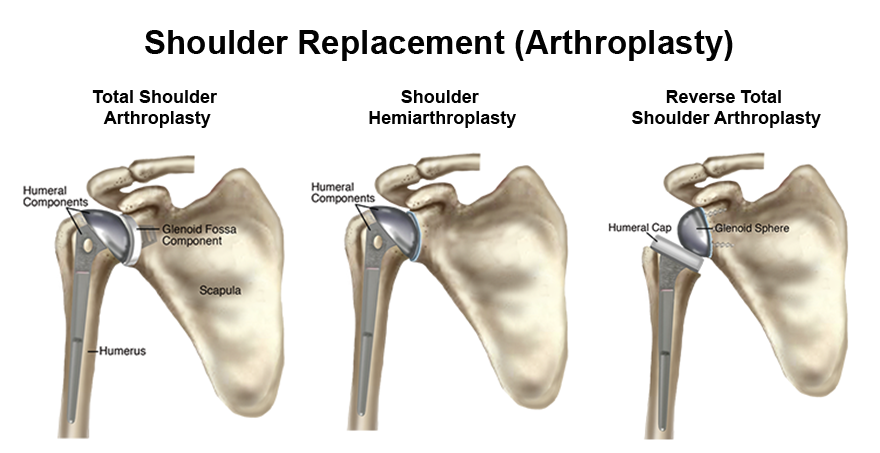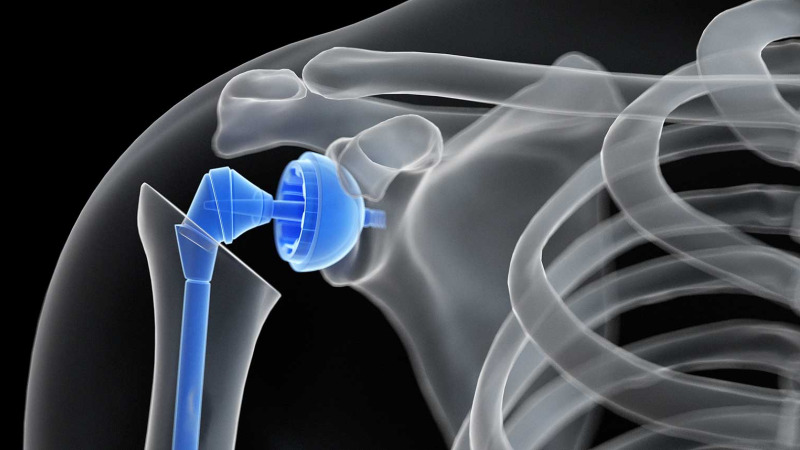Shoulder Replacement Surgery in Faridabad
Shoulder replacement surgery, also known as shoulder arthroplasty, is a surgical procedure that involves replacing a damaged or deteriorated shoulder joint with an artificial joint or prosthesis. This procedure is typically considered when non-surgical treatments are no longer effective in relieving pain and restoring function in the shoulder.

Types of Shoulder Replacement Surgery :
- Total Shoulder Replacement: In this procedure, both the ball (the humeral head) and socket (the glenoid) of the shoulder joint are replaced with prosthetic components.
- Partial Shoulder Replacement (Hemiarthroplasty): Only the humeral head is replaced in a partial shoulder replacement. This is often done when the glenoid is still in good condition.
- Reverse Total Shoulder Replacement: This surgery is recommended for patients with severe rotator cuff damage. It reverses the normal ball-and-socket relationship, placing the ball on the scapula and the socket on the humerusb.
Factors Leading to Shoulder Replacement Surgery :
- Osteoarthritis: Wear and tear of the shoulder joint due to aging.
- Rheumatoid Arthritis: An autoimmune condition that affects the shoulder joint.
- Post-Traumatic Arthritis: Arthritis resulting from a previous shoulder injury or fracture.
- Rotator Cuff Tears: Severe rotator cuff damage can lead to shoulder pain and dysfunction.

Symptoms and Indications for Shoulder Replacement :
Common signs of Shoulder Replacement may include:
- Chronic and severe shoulder pain.
- Limited range of motion in the shoulder.
- Difficulty performing daily activities due to shoulder dysfunction.
- Pain that does not respond to conservative treatments like medications, physical therapy, or injections.
Diagnosis and Evaluation:
- A comprehensive evaluation by an orthopedic surgeon or shoulder specialist.
- X-rays and other imaging studies to assess the extent of joint damage and deterioration.
- Assessment of the patient’s medical history, symptoms, and functional limitations.
- Discussion with the patient to determine if non-surgical treatments have been ineffective in managing the shoulder condition.
- Shoulder replacement surgery is a major procedure and is typically considered after careful evaluation and discussion between the patient and the surgeon.
